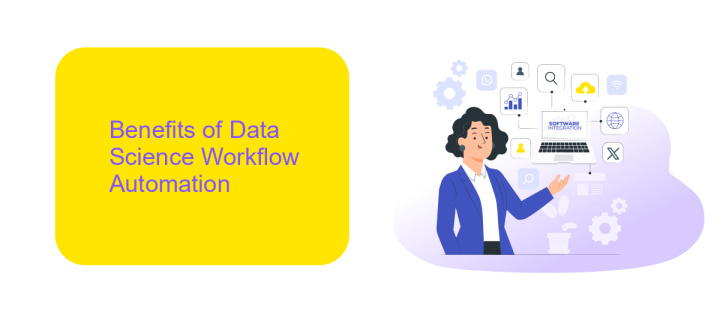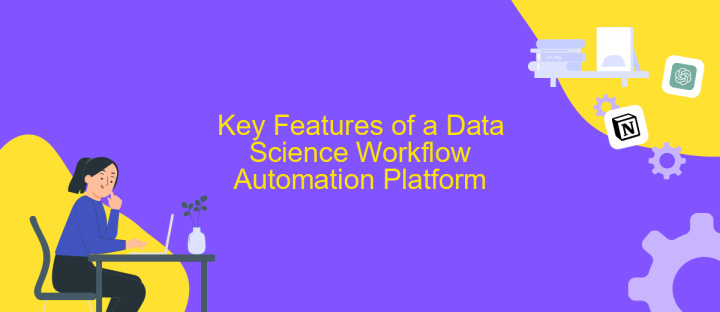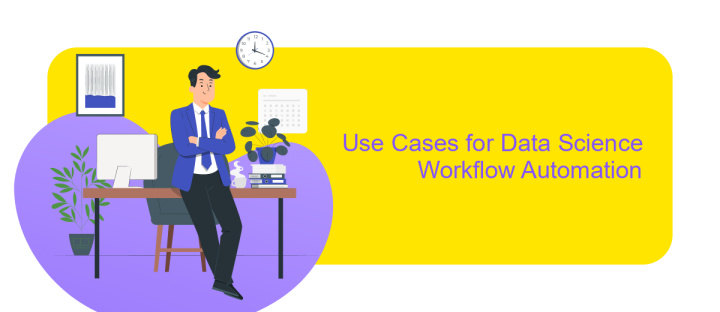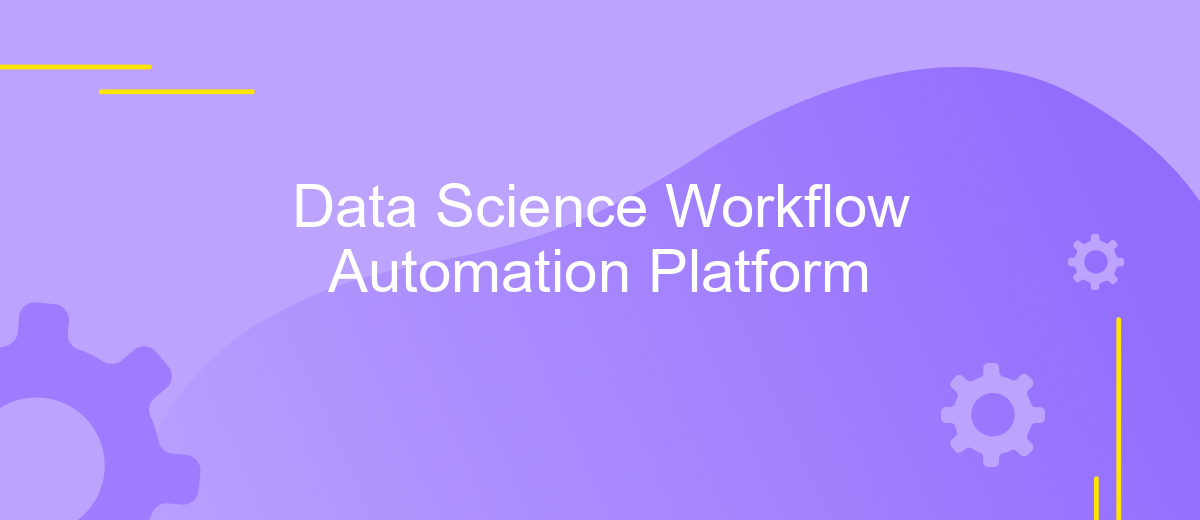Data Science Workflow Automation Platform
In today's data-driven world, automating data science workflows is crucial for maximizing efficiency and accuracy. A Data Science Workflow Automation Platform streamlines the entire process, from data collection to model deployment, enabling data scientists to focus on analysis and insights rather than mundane tasks. This article explores the key features and benefits of implementing such a platform in your data science projects.
Introduction
Data Science Workflow Automation Platforms are revolutionizing the way data scientists and analysts handle their workflows. These platforms streamline complex processes, allowing professionals to focus on extracting insights rather than managing mundane tasks. By automating repetitive steps, they enable faster and more efficient data analysis, ultimately leading to more informed decision-making.
- Automated data collection and preprocessing
- Seamless integration with various data sources
- Real-time data monitoring and updates
- Customizable workflows to fit specific needs
One of the key features of these platforms is their ability to integrate with other tools and services. For instance, ApiX-Drive facilitates seamless integration, allowing users to connect multiple data sources without the need for extensive coding. This not only saves time but also ensures that data is always up-to-date and readily available for analysis. As a result, data scientists can dedicate more time to interpreting data and generating actionable insights.
Benefits of Data Science Workflow Automation

Implementing a Data Science Workflow Automation Platform offers numerous benefits, significantly enhancing productivity and efficiency. By automating repetitive tasks, data scientists can focus on more complex and creative aspects of their projects. This leads to faster project completion times and the ability to handle larger volumes of data with greater accuracy. Automation also reduces the risk of human error, ensuring more reliable and consistent results across various stages of the data science process.
Furthermore, integrating various tools and services becomes seamless with platforms like ApiX-Drive, which facilitate smooth data transfer and synchronization between different applications. This capability not only streamlines workflows but also enhances collaboration among team members by providing a unified platform for data access and analysis. Overall, a Data Science Workflow Automation Platform not only optimizes resources but also fosters innovation by allowing data scientists to dedicate more time to developing advanced models and insights.
Key Features of a Data Science Workflow Automation Platform

A Data Science Workflow Automation Platform streamlines the complex processes involved in data science projects, enhancing efficiency and accuracy. These platforms offer a range of features that empower data scientists to focus on analysis and insights rather than manual tasks.
- Automated Data Ingestion: Seamlessly import data from various sources, reducing the need for manual data entry.
- Data Preprocessing: Automatically clean, transform, and prepare data for analysis, ensuring high-quality datasets.
- Model Training and Evaluation: Automate the training and evaluation of machine learning models, speeding up the development cycle.
- Integration Capabilities: Easily connect with other tools and services, such as ApiX-Drive, to streamline workflows and enhance data integration.
- Scalability: Handle large datasets and complex computations efficiently, allowing for scalable data science solutions.
By leveraging these key features, data scientists can significantly reduce the time and effort required to manage their workflows. The integration capabilities, particularly with services like ApiX-Drive, enable seamless data flow and connectivity, further enhancing the overall productivity and effectiveness of data science projects.
Use Cases for Data Science Workflow Automation

Data Science Workflow Automation platforms streamline the process of data analysis, making it more efficient and error-free. These platforms are essential for handling large datasets, repetitive tasks, and complex workflows, allowing data scientists to focus on more critical aspects of their projects.
One of the primary use cases is in predictive analytics, where automation tools can preprocess data, train models, and evaluate their performance without manual intervention. This not only saves time but also ensures consistency in results.
- Automated data preprocessing and cleaning
- Model training and evaluation
- Integration with various data sources
- Real-time data monitoring and alerting
- Deployment of machine learning models
Platforms like ApiX-Drive can be integrated to facilitate seamless data transfer between different tools and services, enhancing the overall efficiency of the workflow. By automating these tasks, data scientists can allocate more time to developing innovative solutions and deriving actionable insights from their data.
- Automate the work of an online store or landing
- Empower through integration
- Don't spend money on programmers and integrators
- Save time by automating routine tasks
Choosing the Right Data Science Workflow Automation Platform
Choosing the right Data Science Workflow Automation Platform is crucial for streamlining your projects and maximizing efficiency. Start by evaluating your specific needs, such as data integration, processing capabilities, and ease of use. Look for platforms that offer robust support for various data sources and formats. It's also essential to consider scalability and performance, ensuring the platform can handle your current and future data volumes without compromising speed or accuracy.
Another critical factor is the platform's ability to integrate with other tools and services. For example, ApiX-Drive can simplify the integration process by allowing seamless connections between different data sources and applications. This can save valuable time and reduce the complexity of managing multiple systems. Additionally, consider the platform's community and support resources, as these can be invaluable for troubleshooting and optimizing your workflows. By carefully assessing these factors, you can choose a platform that not only meets your current needs but also supports your long-term data science goals.
FAQ
What is a Data Science Workflow Automation Platform?
How can I integrate different data sources into my automated workflow?
What are the benefits of automating data science workflows?
Can I monitor the performance of my models in real-time?
Is it necessary to have programming skills to use a Data Science Workflow Automation Platform?
Apix-Drive will help optimize business processes, save you from a lot of routine tasks and unnecessary costs for automation, attracting additional specialists. Try setting up a free test connection with ApiX-Drive and see for yourself. Now you have to think about where to invest the freed time and money!


